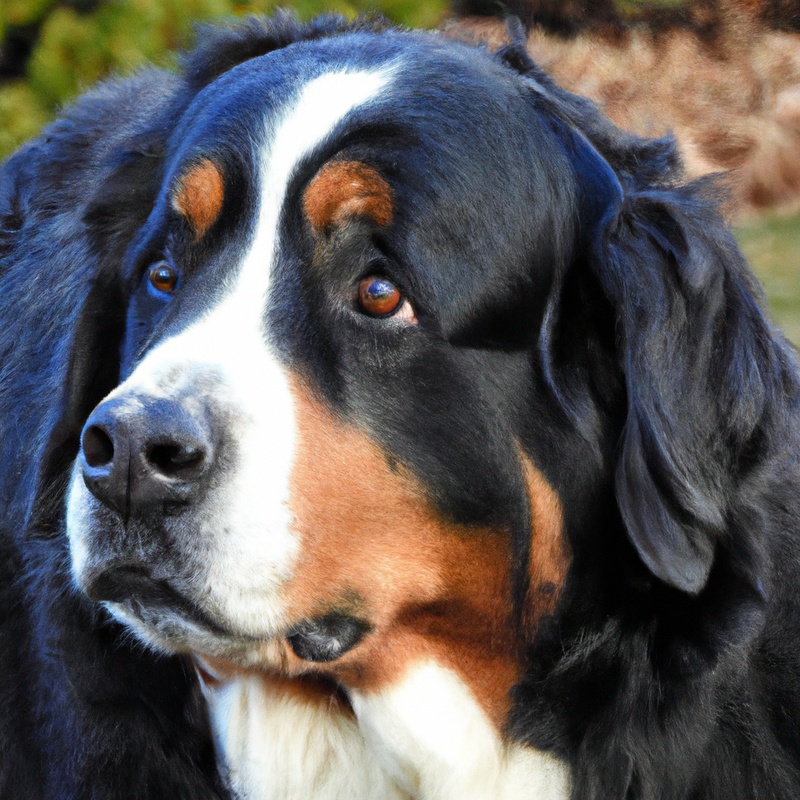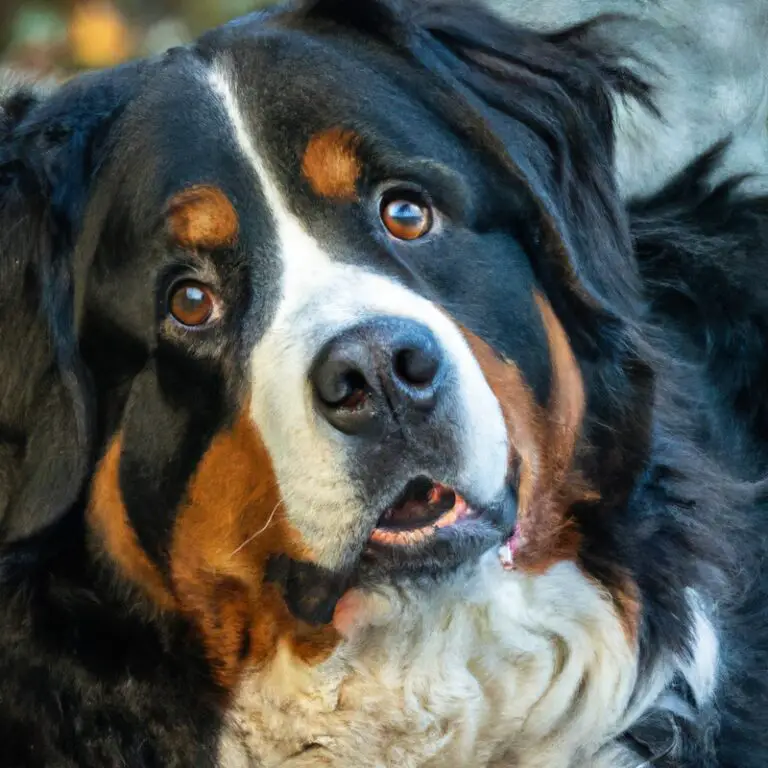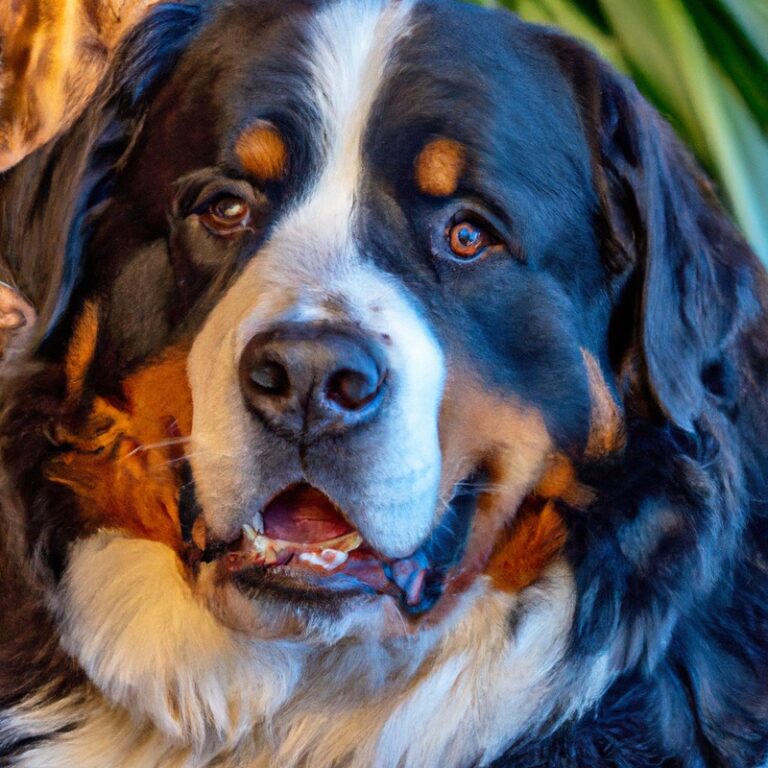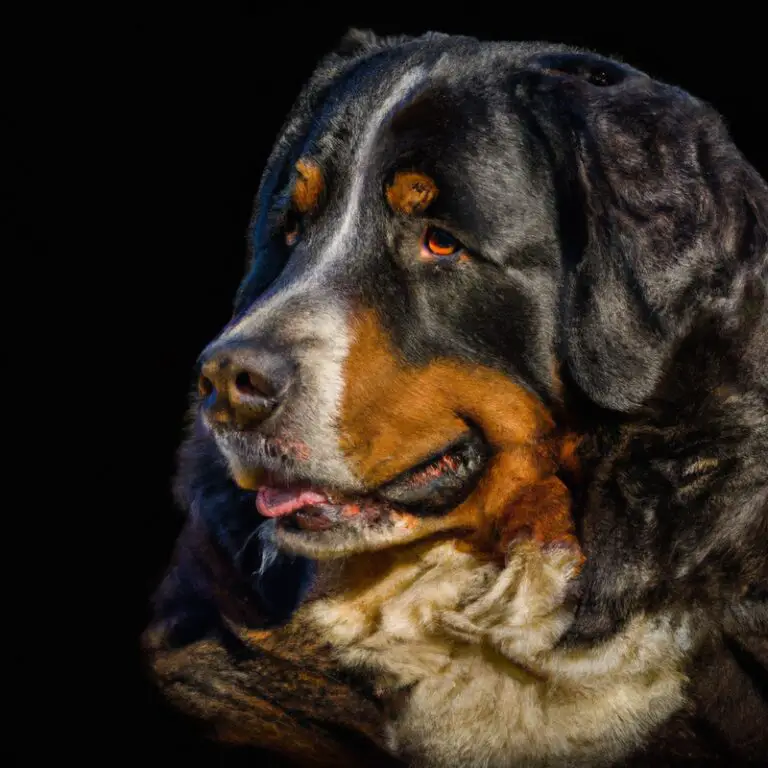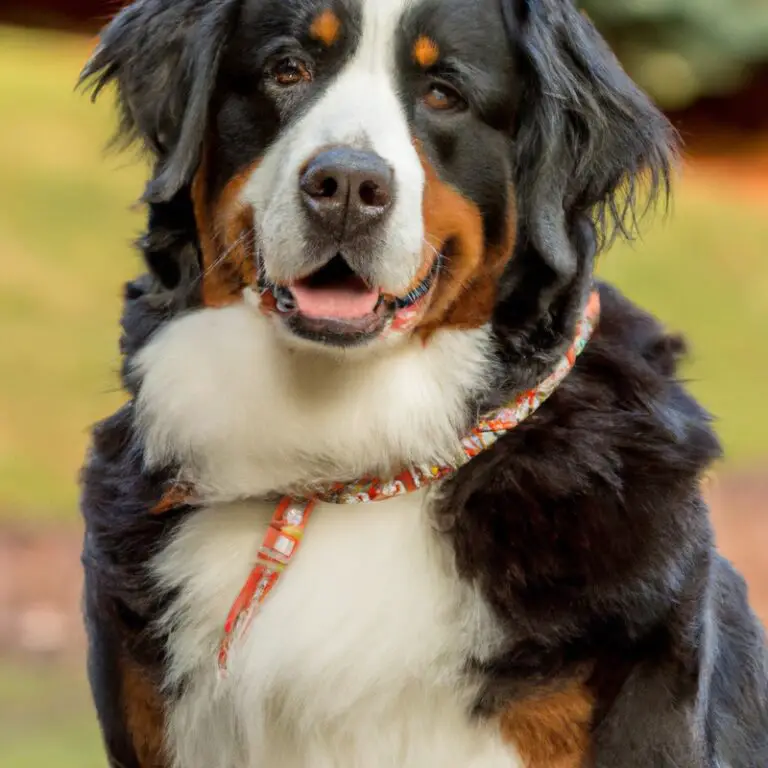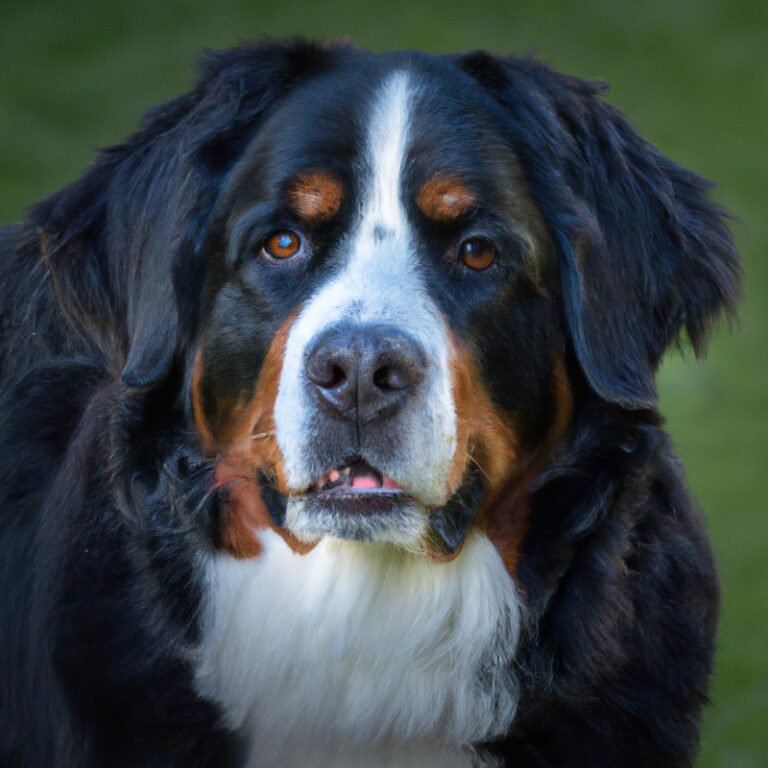What Are The Key Characteristics Of a Well-Bred Bernese Mountain Dog?
Key Takeaways:
- Bernese Mountain Dogs are a large breed known for their friendly and gentle nature.
- They have a strong work ethic and are intelligent, making them highly trainable dogs.
- These dogs are known for their loyalty and devotion to their family members.
- Regular exercise and proper socialization are crucial for a well-balanced Bernese Mountain Dog.
Have you ever come across a Bernese Mountain Dog and wondered what makes them such popular and well-loved companions?
Well, you’re in the right place! As a proud owner of multiple Bernese Mountain Dogs, I’ve had the pleasure of experiencing firsthand the incredible characteristics that make them truly exceptional.
From their rich history and striking physical appearance to their lovable temperament and trainability, this breed possesses a unique combination of traits that make them stand out.
In this article, I will delve into the key characteristics of a well-bred Bernese Mountain Dog, helping you understand what to look for when considering this magnificent breed as your next furry family member.
So let’s dive in and unlock the secrets of this wonderful breed together!
| Characteristic | Description |
|---|---|
| Size | Large and strong, reaching up to 27.5 inches (70 cm) at the shoulder |
| Temperament | Friendly, affectionate, and good-natured |
| Coat | Thick and long, with a double-layered coat that is tricolored (black, tan, and white) |
| Exercise Needs | Requires moderate exercise, such as daily walks and playtime |
| Trainability | Intelligent and eager to please, making training relatively easy |
| Health | Prone to certain health issues, such as hip and elbow dysplasia, and cancer |
| Lifespan | Average lifespan of 7 to 10 years |
Understanding the Bernese Mountain Dog breed
History and origin of the Bernese Mountain Dog
The Bernese Mountain Dog, also known as the Berner Sennenhund, has a rich history and interesting origin.
This breed originated in Switzerland and was primarily used as a working dog on farms and in the Swiss Alps.
They were responsible for herding livestock, pulling carts, and guarding property.
With their strong build and gentle temperament, Bernese Mountain Dogs quickly became beloved companions.
Despite their ancient origins, these dogs didn’t gain international recognition until the early 20th century.
Today, they are cherished family pets known for their loyalty, intelligence, and friendly nature.
Physical appearance and size of a Bernese Mountain Dog
The Bernese Mountain Dog is a large and muscular breed with a distinctive tri-colored coat.
They have a strong and sturdy build, with a broad chest and deep body.
Their head is proportionate to their body and has a friendly expression.
Bernese Mountain Dogs have medium-sized, dark eyes and triangular-shaped ears that hang down.
They have a thick, double coat that is black with rust-colored markings and white on their chest, face, and paws.
These dogs have a height range of 23 to 28 inches and weigh between 70 to 115 pounds.
Their size and physical appearance make them a striking and beautiful breed.
Temperament and personality traits of the breed
The Bernese Mountain Dog breed is known for its friendly and gentle temperament.
They are loyal and affectionate towards their family members, including children.
These dogs are also very intelligent and eager to please, making them easy to train.
While they may be reserved around strangers, they are generally not aggressive.
However, they can be prone to separation anxiety if left alone for long periods, so it’s important to provide them with plenty of socialization and companionship.
Overall, the Bernese Mountain Dog is a loving and devoted breed that makes a great family pet.
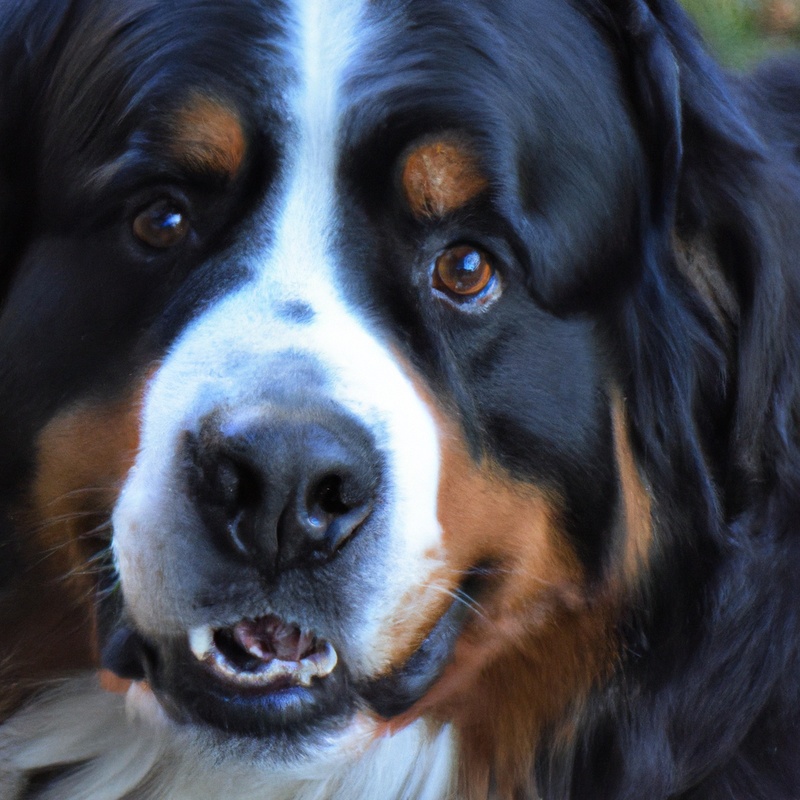
Key characteristics of a well-bred Bernese Mountain Dog
Health and longevity
Health and longevity are important considerations when it comes to a well-bred Bernese Mountain Dog.
Here are key characteristics to look for:
- Good overall health: A well-bred Bernese Mountain Dog should have a sound physical health, free from genetic disorders and common health issues seen in the breed.
- Regular veterinary care: Regular visits to the veterinarian for check-ups, vaccinations, and preventive care are essential to maintain the dog’s health and longevity.
- Balanced diet: Providing a well-balanced diet that meets their nutritional needs is crucial for their overall health and longevity.
- Regular exercise: Bernese Mountain Dogs are an active breed that needs regular exercise to maintain their physical and mental well-being.
- Temperament: A well-bred Bernese Mountain Dog should have a stable and friendly temperament, which contributes to their overall happiness and longevity.
By focusing on these key characteristics, you can ensure that your Bernese Mountain Dog is healthy and has a long and fulfilling life.
Good temperament and trainability
Good temperament and trainability are key characteristics of a well-bred Bernese Mountain Dog.
These dogs are known for their friendly and gentle nature, making them great family pets.
They are also highly trainable, eager to please, and quick learners.
This combination of good temperament and trainability makes Bernese Mountain Dogs a joy to train and a pleasure to have as a companion.
They respond well to positive reinforcement and enjoy participating in activities such as obedience training and agility.
Conformation to breed standards
Conformation to breed standards is an important aspect of a well-bred Bernese Mountain Dog.
It refers to how closely the dog matches the ideal physical characteristics set by breed clubs and organizations.
These standards include specific measurements, proportions, and features like the coat, color, and facial expression.
A well-bred Bernese Mountain Dog should have a strong and balanced structure, sturdy bone structure, and a gentle expression.
Their coat should be thick, shiny, and tricolored.
Proper conformation ensures the dog’s ability to perform their intended tasks and reflects their overall health and soundness.
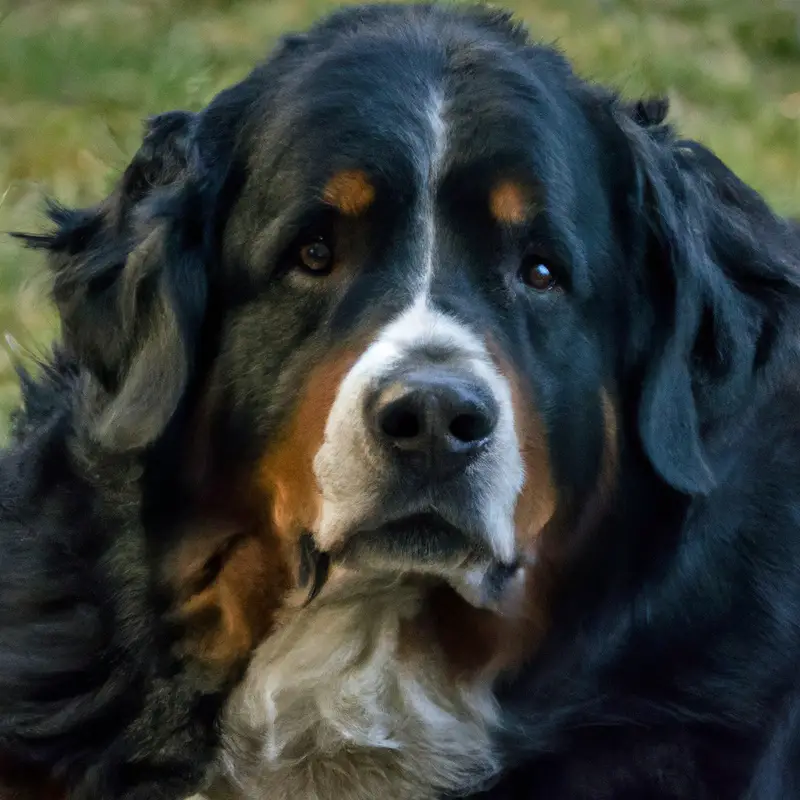
Genetic testing and responsible breeding practices
Genetic testing and responsible breeding practices are essential when it comes to breeding Bernese Mountain Dogs.
Breeders who prioritize these practices ensure that they are producing healthy puppies, free from hereditary diseases and genetic disorders.
Conducting genetic tests on the breeding pair helps identify any potential health issues, allowing breeders to make informed decisions about mating.
Responsible breeders also consider the overall health and temperament of their dogs, promoting the well-being of the breed.
By adhering to genetic testing and responsible breeding practices, breeders can help maintain the quality and longevity of Bernese Mountain Dogs.
How to identify a well-bred Bernese Mountain Dog
Meeting the parents and observing their behavior
Meeting the parents and observing their behavior is a vital part of identifying a well-bred Bernese Mountain Dog. When you meet the parents, pay close attention to their temperament, as this can be passed down to their offspring.
Look for friendly and outgoing behavior, as well as a calm and confident demeanor.
Observe how the parents interact with people, children, and other animals to ensure they are well-socialized. Additionally, assess their physical health and appearance to ensure they meet the breed standards.
Taking the time to meet the parents and observe their behavior will give you valuable insights into the potential traits and characteristics of the puppies.
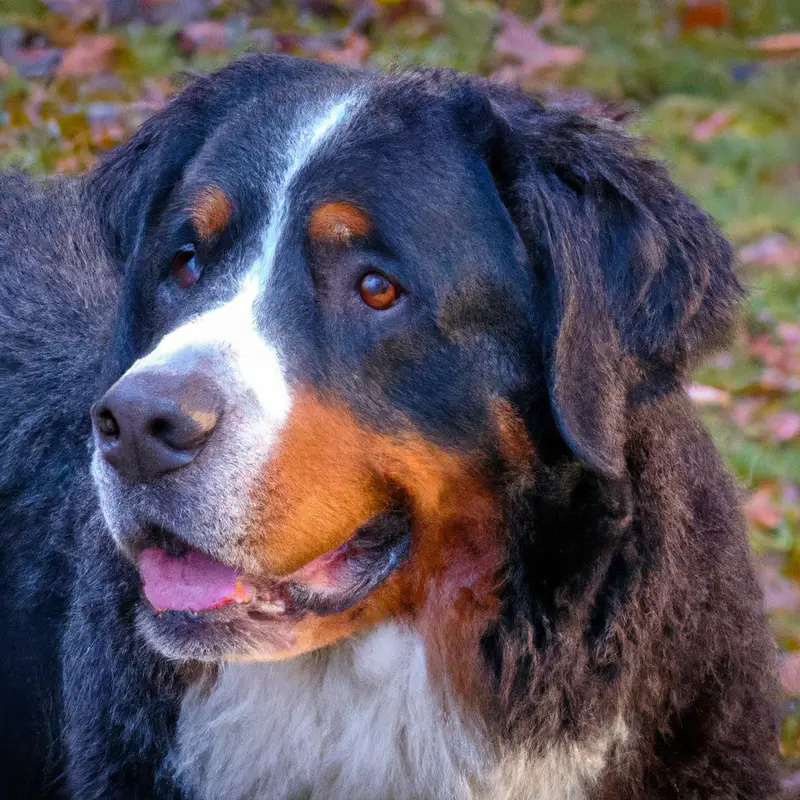
Evaluating the puppy’s environment and conditions
When evaluating a puppy’s environment and conditions, there are a few key factors to consider.
Firstly, look at the cleanliness of the area.
The space should be well-maintained and free of any signs of neglect.
Secondly, observe how the puppies are kept.
They should have access to clean water, proper nutrition, and sufficient living space.
Thirdly, pay attention to the socialization of the puppies.
A well-bred Bernese Mountain Dog should be exposed to different people, animals, and environments from a young age.
Remember, a healthy and nurturing environment is essential for a well-adjusted puppy.
Requesting health clearances and documentation
When looking to identify a well-bred Bernese Mountain Dog, it is important to request health clearances and documentation.
This includes asking for proof of health tests such as hip and elbow evaluations, as well as documentation of genetic testing for conditions common in the breed.
These clearances and documentation help ensure that the dog’s parents and ancestors were free of hereditary health issues, giving you greater confidence in the dog’s overall health and well-being.
Remember to ask the breeder for these important documents before making a decision.
Frequently Asked Questions about well-bred Bernese Mountain Dogs
What health issues should I be aware of in this breed?
Bernese Mountain Dogs are generally healthy, but there are a few health issues to be aware of.
These include:
- Hip and elbow dysplasia: This is a common joint problem in large breeds and can lead to arthritis and mobility issues. Regular exercise and maintaining a healthy weight can help prevent or manage this condition.
- Certain types of cancer: Bernese Mountain Dogs have a higher risk of developing certain types of cancer, such as mast cell tumors and lymphoma. Regular check-ups and early detection are important for successful treatment.
- Gastric dilation-volvulus (bloat: This is a life-threatening condition where the stomach twists, cutting off blood supply. Feeding smaller, more frequent meals and avoiding exercise immediately after meals can reduce the risk.
- Progressive Retinal Atrophy (PRA: PRA is a degenerative eye disease that can lead to blindness. Regular eye exams by a veterinary ophthalmologist can help identify and manage this condition.
It’s essential to work with a reputable breeder who conducts health screenings on their breeding dogs to reduce the risk of these health issues.
Regular veterinary check-ups and a well-balanced diet can also contribute to your Bernese Mountain Dog’s overall health and well-being.
How should I socialize a Bernese Mountain Dog puppy?
Socializing a Bernese Mountain Dog puppy is essential to ensure they grow up to be well-rounded and friendly adult dogs. To socialize a Bernese Mountain Dog puppy, expose them to a variety of people, animals, sounds, and environments from a young age.
Take them on walks, introduce them to other dogs, and allow them to experience different situations.
Gradually increase their exposure while ensuring positive experiences. Puppy classes and playdates can also help in their social development.
Remember, early and consistent socialization is key to raising a well-adjusted Bernese Mountain Dog.
Are Bernese Mountain Dogs good with children and other pets?
Bernese Mountain Dogs are known to be great companions for children and get along well with other pets. They have a gentle and friendly nature, making them patient and tolerant around kids.
Their calm disposition and loyalty make them excellent family dogs.
However, it’s important to supervise interactions between dogs and young children to ensure safety and teach kids how to properly handle and respect pets. Proper socialization and training are key to fostering positive relationships with other pets.
How do I find a well-bred Bernese Mountain Dog for adoption?
To find a well-bred Bernese Mountain Dog for adoption, start by contacting local animal shelters and rescue organizations.
They may have Bernese Mountain Dogs available for adoption or provide referrals to reputable breeders.
Additionally, consider reaching out to Bernese Mountain Dog breed clubs or associations, as they often have resources and rescue networks.
Remember to do thorough research on any potential sources and ask questions about the dog’s health, temperament, and breeding background.
Final Verdict
A well-bred Bernese Mountain Dog embodies key characteristics that make it an exceptional companion. From a solid foundation of health and longevity, to a balanced temperament and ease of trainability, these dogs truly excel.
The adherence to breed standards, combined with genetic testing and responsible breeding practices, ensures that these dogs are of the highest quality.
When seeking a well-bred Bernese Mountain Dog, it is crucial to research reputable breeders, evaluate the puppy’s environment, and request health clearances. By following these guidelines, you can find a remarkable Bernese Mountain Dog that will bring joy and companionship for years to come.

